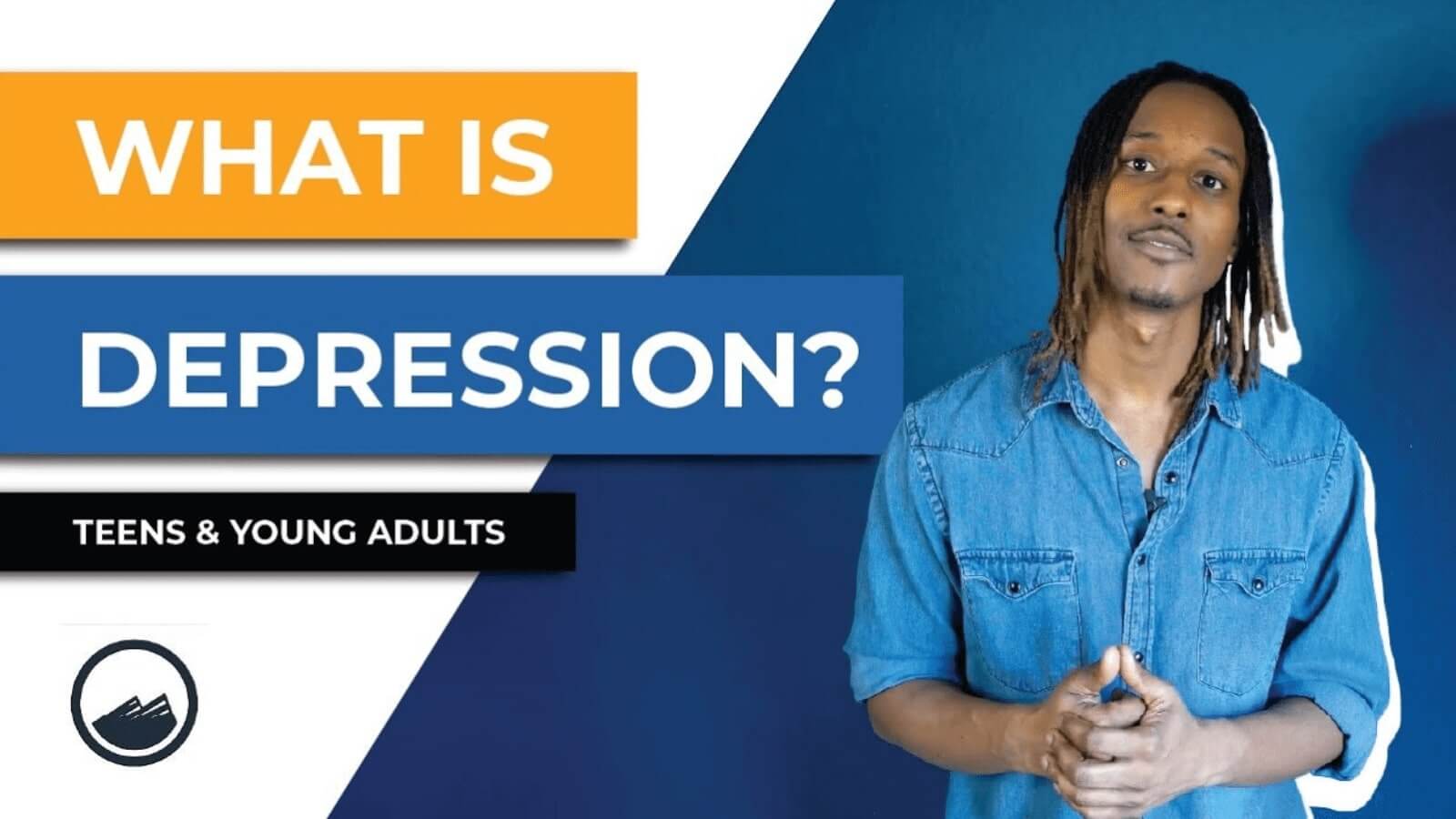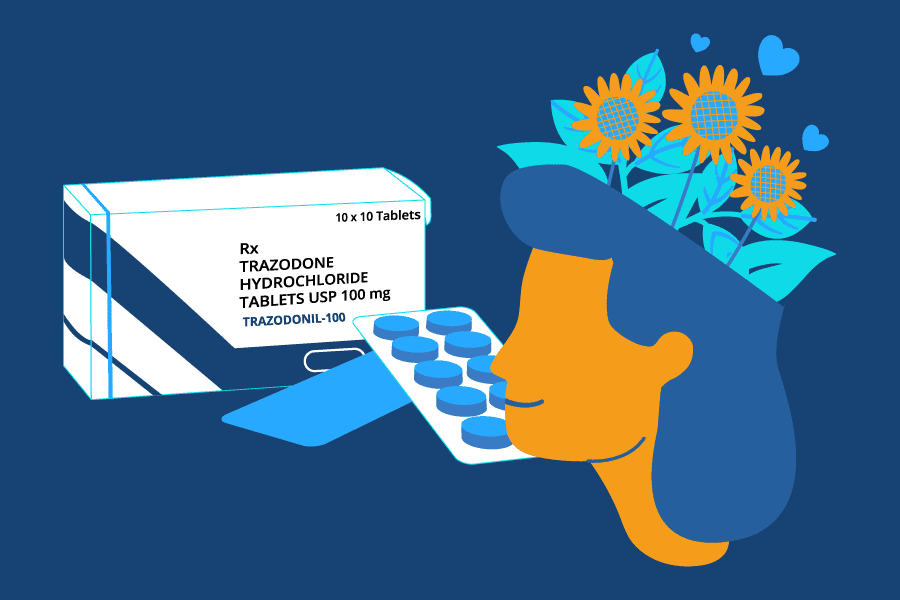How Does School Affect Teenage And Young Adult Mental Health?
School can present many challenges and stressors to teenagers and young adults.
During high school and college, young people face unique challenges, which can lead to mental health issues. The adolescent brain continues to develop until around age 25. Teens and young adults encounter stress without the capacity to handle certain life events.
Teens in high school need to make several decisions about their futures. Sometimes, the pressures can be overwhelming. They are trying to fit in with peers, dealing with hormonal changes, coping with stress for the first time, and choosing their path in life.
According to the Centers for Disease Control and Prevention (CDC), the prevalence of mental illness among teens has increased since 2009.
Poor mental health can cause issues for teens, including poor school performance, low self-esteem, and an increased risk of substance abuse. It is crucial for schools to ensure that teens have a healthy environment to foster positive outcomes for mental health.
The CDC shares some of the following statistics regarding teen mental health:
- “More than 1 in 3 high school students had experienced persistent feelings of sadness or hopelessness in 2019”
- “In 2019, approximately 1 in 6 youth reported making a suicide plan in the past year”
Following the stress of the recent pandemic, these numbers might increase due to issues that teens face with social isolation, loss, and fear. Both teens and young adults in college face similar stressors, potentially leading to poor mental health outcomes.
According to the National Institute of Mental Health (NIMH), “Young adults aged 18-25 years had the highest prevalence of [any mental illness] (29.4%).”
Like teens, nearly one in every three young adults experiences a mental health issue. Going to college after high school can be stressful for young adults. They might be moving far from home, away from their support system of parents and friends.
Young adults and teens deal with several changes and pressures during school. Without treatment or healthy coping skills, they can develop mental illnesses like mood disorders, major depression, anxiety disorders, and substance use disorders.
Stress during adolescence can lead to mental health problems into young adulthood. The teenage brain cannot process and manage stress without healthy coping skills, support, and guidance from adults.

What Does Stress Do To The Teenage Brain?
Stress can affect how a teenager’s brain develops, which can lead to mental health issues.
The adolescent brain does not fully develop until young adulthood, typically around the age of 25. Teenagers can struggle to manage stress due to hormonal changes that begin during puberty. Teens can feel more intense emotions than older adults.
The teenage brain is not developed to handle higher-order brain functions like:
- Emotional regulation
- Long-term planning
- Decision-making
- Impulse control
- Judgment
Without these crucial skills, teens are much more vulnerable to reckless behaviors, and they might fail to consider long-term consequences. When faced with stress, teens might not know how to manage their emotions, which can lead to maladaptive coping skills.
Maladaptive coping skills are unhealthy behaviors that a teen might use to obtain their needs or regulate their emotions, including:
- Alcohol and drug use
- Vaping or tobacco use
- Excessive gaming
- Social media and internet addiction
- Isolation and avoidance
- Risky behaviors (like reckless driving and unsafe sex)
- Self-harming behaviors
These behaviors “hijack” the teenage brain as a shortcut to deal with stress. When teens do not develop healthy ways to cope with stress, their brains can develop in ways that put them at a greater risk of experiencing mental illness and substance abuse issues.

Can School Stress Cause Mental Illness?
Teens and young adults who struggle to cope with school stress are vulnerable to developing a mental illness or substance use disorder.
School stress can be challenging for teens and young adults. High school students could struggle with peer pressure and decision-making as they grow up. College students face unique challenges related to young adulthood, like a lack of parental supervision.
According to the CDC, “Schools play a critical role in promoting the health and safety of young people and helping them establish lifelong healthy behaviors.”
School health programs can promote healthy outcomes for teens and young adults. Poor performance in school is consistently linked with risky behaviors, like unsafe sex, violence, and substance use.
Since better grades and academic performance are linked to positive mental health outcomes, it is essential to monitor your child’s grades and promote healthy habits around learning. Of course, too much pressure can also lead to stress, so balance is key.
While schools don’t “cause” mental illness, schools can play a critical role in developing positive mental health outcomes in young people.
Schools and parents should be mindful of the links between mental health and school performance. Without interventions and support for teens and young adults who struggle, young people can develop lifelong substance abuse and mental health issues.

What Are The Risk Factors Of Depression In Teens And Young Adults?
Certain risk factors could lead to depression or other mental illnesses in young people, such as:
- Family history of mental illness
- Conflicts between parent and child
- Family dysfunction
- Bullying
- Learning and developmental disabilities
- Low self-esteem
- Childhood sexual or physical abuse
- Neglect
- Poverty
- Lack of parental guidance and supervision
- Drug and alcohol use
- Stressful life events, like the death of a loved one, moving, or parental divorce
According to the CDC, additional risk factors of mental illness on the rise include:
- “Almost half of lesbian, gay, or bisexual students and nearly one-third of students not sure of their sexual identity reported they had seriously considered suicide — far more than heterosexual students.”
- “The number of black students who reported attempting suicide in 2019 rose by almost 50%.”
Teen depression can lead to a number of psychological and physical health conditions. Teens with depression are at a greater risk of using substances to self-medicate to numb their emotions.
The risk of depression increases with the number of risk factors present and a lack of healthy coping skills. Some teens can deal with stressful life events if they have protective factors, like healthy home environments and parental guidance.
While teens might fluctuate in mood and behavior as a part of growing up, you should be aware of the signs of depression among teens. One of the most telling signs of mental health issues in teens is a decline in school performance.

Are Bad Grades A Symptom Of Depression In Teens?
Bad grades could be a symptom of depression in teens or the result of other issues and disabilities.
When you look for signs of depression and mental illness, you want to look for sudden changes in behavior and mood. While a decline in school performance can be due to depression, poor grades can also cause self-esteem issues leading to depression.
For example, a teen with attention-deficit/hyperactivity disorder (ADHD) might struggle to study or pay attention in class, resulting in bad grades or being held back. Poor school performance can impact their self-esteem, leading to isolation and depression.
Warning signs of depression in young people include:
- A decline in academic performance
- Loss of interest in hobbies and other activities
- Increased isolation
- Spending more time on social media and the internet
- A “nothing matters” attitude
- Sloppy appearance and poor hygiene
- Monotone voice and a lack of energy
- Not going into depth during conversations (for example, always responding “it’s fine”)
- Alcohol and substance use
- Irritability and mood swings
- Risky and reckless behaviors
- Suicidal thoughts and ideations
Depression occurs when you suppress or numb all emotions. While you might assume depression is just a form of sadness, depression is much different. In fact, a lack of feeling sad when appropriate could be a sign of emotional numbness or depression.
The risk of suicide is high among young people with depression, and “[s]uicide was the second leading cause of death among individuals between the ages of 10 and 34″ in 2019.
Suicide prevention begins with developing healthy ways to deal with stress and challenging life events. If your child expresses suicidal thoughts or makes a suicide attempt, it is critical to get help from a mental health professional or emergency services immediately.

What Causes Mental Health Issues In Teens And Young Adults?
Mental health issues in teens and young adults can be caused by the presence of risk factors and a lack of protective mental health factors.
Certain risk factors, like being a member of the LGBTQ+ community or childhood trauma, increase the risk of depression and mental illness in young people. However, not everyone with risk factors develops a mental illness.
The causes of mental health issues have a lot to do with a lack of certain protective factors that lower your risk of developing mental illness.
Due to family history and genetics, you might be more likely to develop mental health issues than others. However, you can still thrive in life despite a mental illness if you keep your symptoms in check.
Since schools play such a critical role in the mental health of young people, it is vital to foster protective factors in young adults and teens, such as:
- Healthy eating habits
- Exercise and physical activity
- Connection to peers, community, school, and family members
- Meaningful hobbies and activities
- Developing problem-solving skills
- Clear expectations for behavior
- Structure and routine
- Feeling safe and secure
- Positive praise
- High self-esteem
When young people do not have these healthy protective factors in their lives, they are more likely to avoid emotions and relationships, isolate, use substances to cope, or engage in unhealthy behaviors.
School can be a very stressful time for young people. Both high school and college students are vulnerable to developing mental health issues during this time.

Why Is School Stressful For Students?
Students can feel that school is stressful due to several biological and psychosocial issues that occur during this time.
For teens, they begin developing friendships and romantic relationships during school. Social pressures can be taxing on teens who worry about their status among their peers. Puberty also causes many bodily changes that can be stressful for teens to manage.
Social media and peer pressure can be overwhelming. As teens build their identities, they are vulnerable to worrying about what peers and others think of them. Parents and teachers can look for ways to encourage and foster students’ strengths to build self-esteem.
In addition, kids might be bullied by others, either online or in person.
Teens who experience bullying are at a higher risk of developing depression and other mental health issues than other kids. Victims of bullying can even display more aggressive behaviors than others in response to bullying.
According to the Journal of Child and Family Studies, “The consequences of cumulative victimization were clear, with significant paths to increased internalizing symptoms (i.e., anxiety and depression), low self-esteem, and low future optimism.”
The presence of bullies is not the only issue with bullying. Nearby peers watching while doing nothing to help can also make victims feel alienated and alone. Teachers and school counselors can help by encouraging bystanders who stand up for victims of bullies.
School is also stressful due to a student’s perceived status based on academic performance.
When kids perform poorly in school, they might feel like they do not have a bright and hopeful future. Decreased optimism can lead to depression and other mental health issues. Teens might put a lot of pressure on themselves to do well, leading to stress and anxiety.
When kids struggle with academics, it is essential to look for underlying issues causing poor performance. An impairment or learning disability might be overlooked, setting kids up for failure. Young people can learn adaptive skills to thrive despite learning impairments.
If your child struggles with school, even with academic interventions, it is best to check with your primary care physician or other health care provider. Your child might have an undiagnosed learning or development disability impacting their school performance.
Young adults attending college can also face many stressors related to school.
Graduating from high school and attending college can be a positive experience and a sign of success for young people. However, transitioning into young adulthood comes with specific stressors that some kids don’t anticipate.
College can be stressful for young adults for many reasons, like:
- Moving away from home
- Increased academic demands compared to high school
- Dealing with roommates for the first time
- Lack of parental supervision
- Loose structure and routine
- Peer pressure to party, drink, or use drugs
If your child’s academic performance sharply declines from high school to college, they might be struggling with issues outside of academics. They could be out partying or unable to stick to a schedule without parental guidance.
In addition, symptoms of some mental illnesses, like schizophrenia and bipolar disorder, don’t appear until young adulthood.
It is essential to prepare kids for the changes they will face in college. They might still need expectations set for them to attend classes and study. Parents can also support their kids by regularly checking in after they move away.
Rather than expecting your child to contact you, it is best to set up times to check in with them over video chat or by phone each week. That way, your child feels that you are still present, even if they don’t see you every day.
Due to the prevalence of school stress, many high schools and colleges provide mental health support for young people who struggle. However, when kids develop severe mental health or substance use disorders, they might require more intensive treatment.

Is There Treatment For School Stress In Teens And Young Adults?
Many mental health and substance use treatment programs provide academic support for teens and young adults who struggle with school stress.
Substance abuse and mental health service providers know that falling behind in academics can be a common treatment barrier for teens and young adults. Some people might forgo getting help because they don’t want to fail or get held back in school while in treatment.
Teens and young adults who struggle can continue to fall behind in school if they do not get the necessary mental health support.
Sometimes, you need to take a step back to move forward. The longer that mental health issues go untreated, the worse they will become. You could develop a lifelong mental illness or substance use disorder that will hold you back as an adult.
Academic and vocational support provided by inpatient and outpatient treatment providers can help you stay on track.
Treatment centers can give you both therapy and support for your academic and vocational goals. You can learn to deal with stress with techniques like cognitive behavioral therapy (CBT) to get better so you can focus on achieving your goals.
If you or your loved one struggle with depression or other mental illnesses during school, getting treatment can help to get back on track and move forward with the next steps in your life.
Depression and other mental illnesses might develop during high school and college. Sandstone Care is here to support teens and young adults with substance use and mental health disorders. Call (888) 850-1890.







